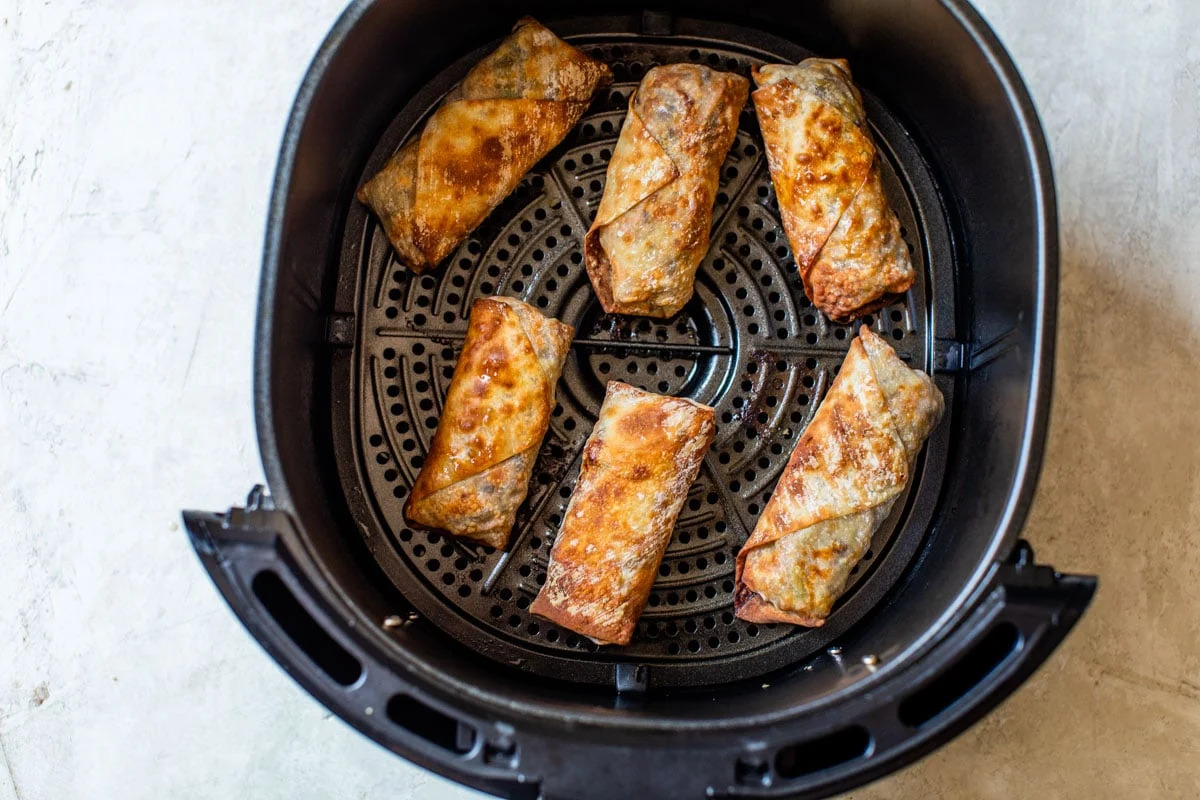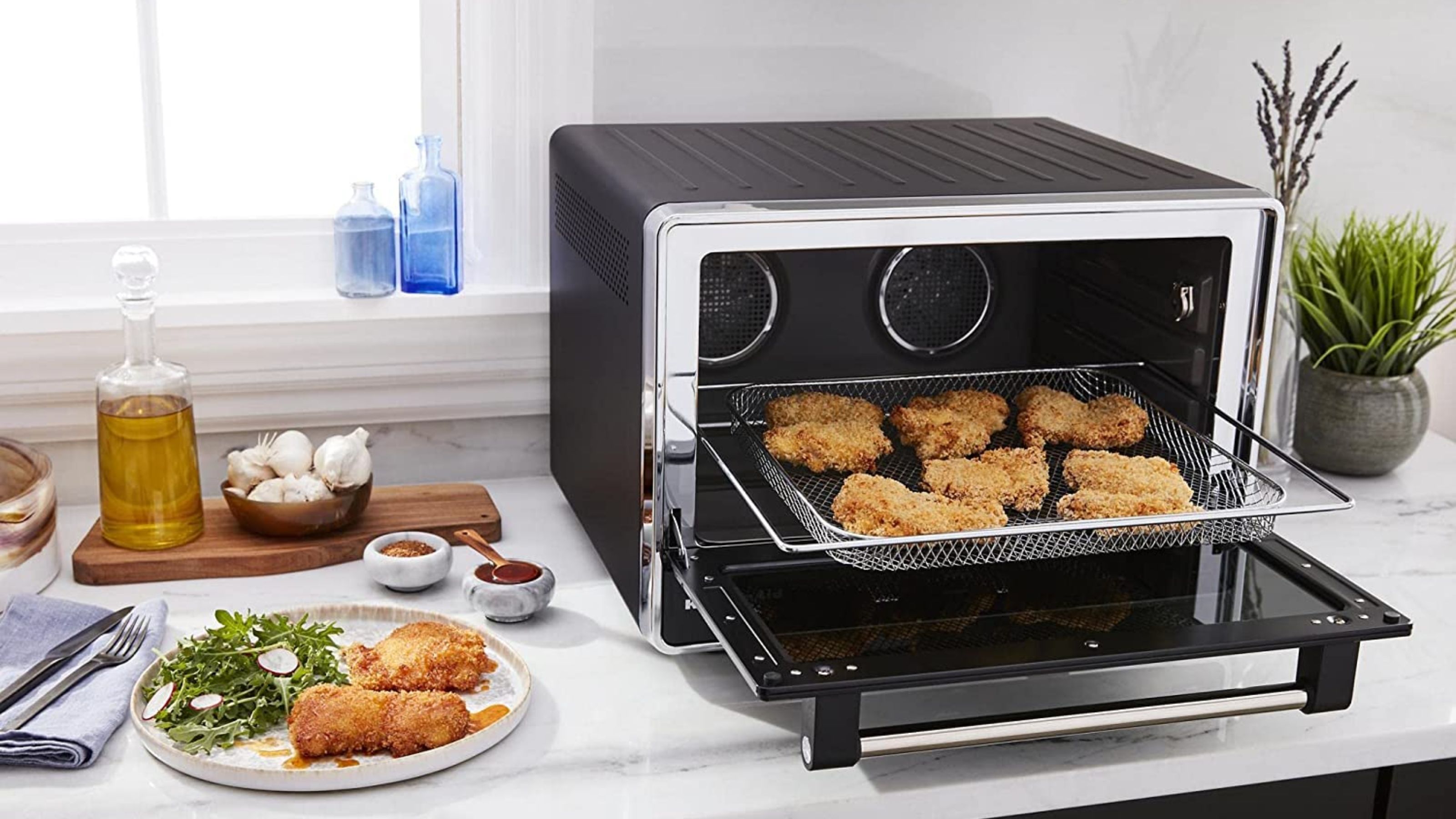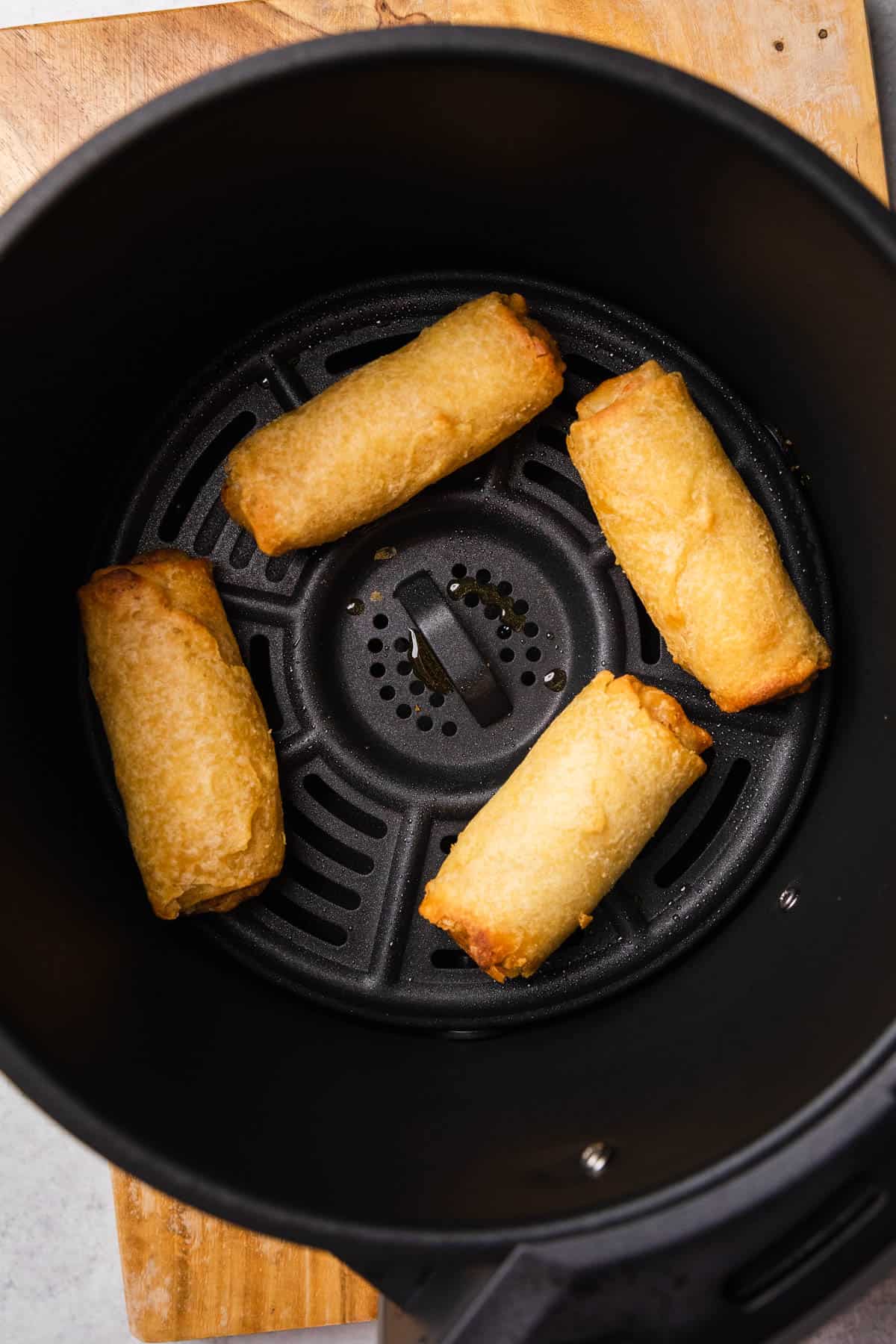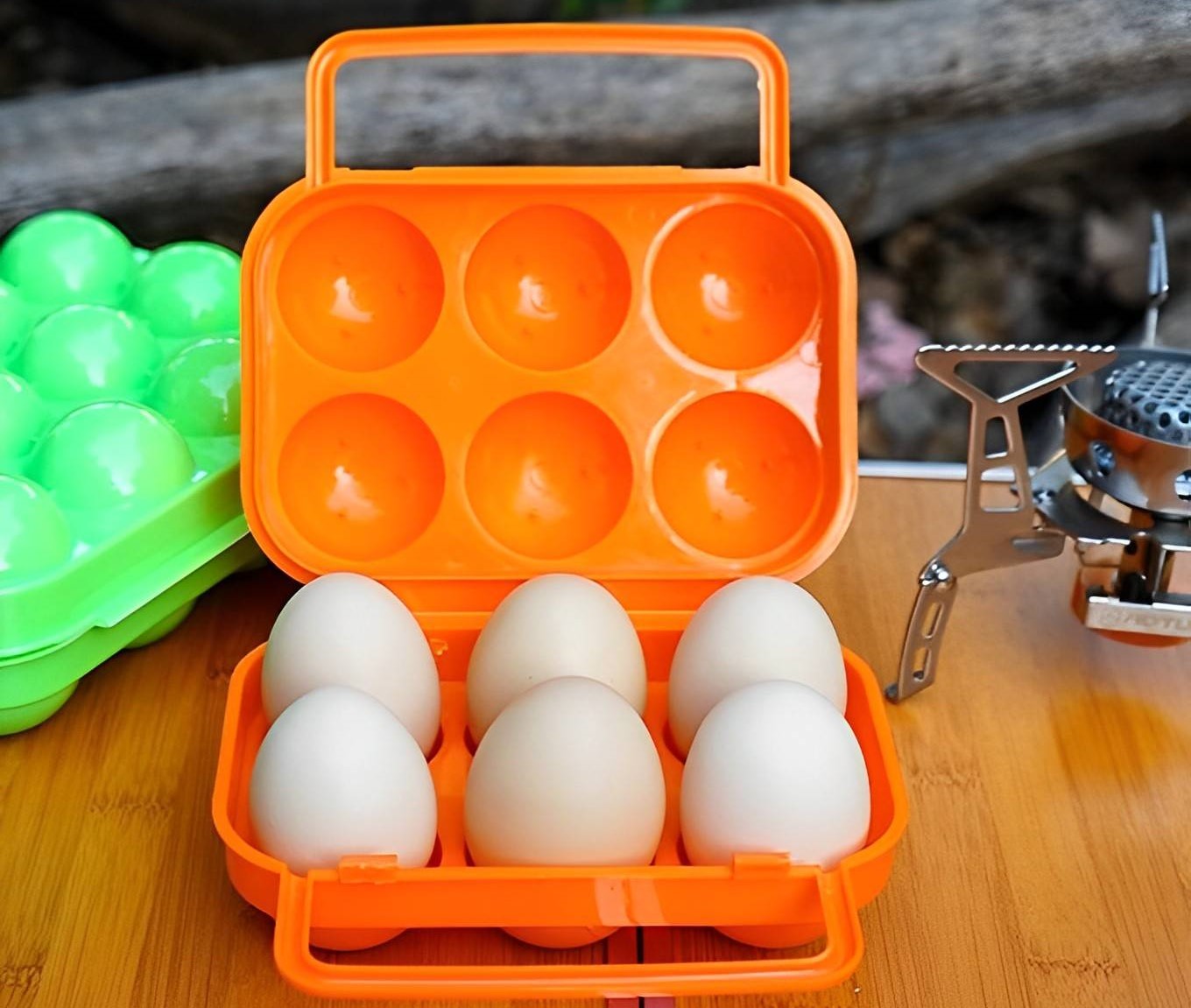

Articles
How To Store Egg Rolls
Modified: February 27, 2024
Learn the best methods for storing egg rolls in this informative article. Discover expert tips to keep your egg rolls fresh and delicious for longer.
(Many of the links in this article redirect to a specific reviewed product. Your purchase of these products through affiliate links helps to generate commission for Storables.com, at no extra cost. Learn more)
Introduction
Egg rolls are a delicious and popular snack enjoyed by many around the world. Whether you are making them at home or ordering them from a restaurant, one thing is for certain – storing egg rolls properly is essential to maintain their freshness and flavor. In this article, we will explore the importance of proper storage methods for egg rolls and provide you with helpful tips to keep them tasting their best.
Proper storage not only ensures that your egg rolls maintain their texture and taste, but it also helps prevent foodborne illnesses caused by improper handling. By following the correct storage procedures, you can extend the shelf life of egg rolls, allowing you to enjoy them for longer periods without any compromise in flavor or quality.
In the next sections, we will discuss the importance of selecting the right container for egg roll storage, how to prepare egg rolls for storing, the best practices for refrigeration and freezing, as well as the proper methods for thawing and reheating frozen egg rolls. So, let’s dive in and discover the secrets to preserving and enjoying delicious egg rolls at any time.
Key Takeaways:
- Properly storing egg rolls is crucial for maintaining their freshness, texture, and taste. By following the right storage methods, you can extend their shelf life, save money, and enjoy this delectable snack at your convenience.
- Whether refrigerating or freezing egg rolls, wrapping them tightly, labeling containers, and following safe food handling practices are essential. By adhering to best storage practices, you can ensure the quality and safety of your egg rolls for extended periods.
Read more: How To Store Uncooked Egg Rolls
Importance of Proper Storage of Egg Rolls
Proper storage of egg rolls is crucial for maintaining their taste, texture, and overall quality. Here are some key reasons why it is important to store egg rolls correctly:
- Freshness: By storing egg rolls properly, you can ensure that they remain fresh and flavorful. This is particularly important if you have leftover egg rolls or if you’re making a large batch that needs to be stored for later consumption.
- Prevent foodborne illnesses: Improper storage of egg rolls can lead to the growth of harmful bacteria and increase the risk of foodborne illnesses. To prevent this, it is essential to follow safe storage practices to maintain food safety.
- Extend shelf life: Proper storage methods can help extend the shelf life of egg rolls. This is especially beneficial when you want to enjoy egg rolls over a few days or if you’re preparing them in advance for a party or event.
- Save money: By storing your egg rolls properly, you can avoid unnecessary waste and save money. Instead of throwing away leftover egg rolls, you can safely store them for later consumption, eliminating the need to buy additional food.
- Maintain texture: Egg rolls can lose their crispy texture when exposed to moisture or improper storage conditions. By storing them correctly, you can help retain their desired texture, ensuring a delightful eating experience.
By understanding the importance of proper storage, you can ensure that your egg rolls stay fresh, safe to eat, and delicious for as long as possible. The next sections will guide you through the specific steps and techniques required to store egg rolls correctly.
Selecting the Right Container for Egg Roll Storage
Choosing the proper container for storing your egg rolls is essential to maintain their freshness and protect them from moisture and contaminants. Here are some factors to consider when selecting the right container:
- Airtightness: Opt for containers that are airtight to prevent moisture from entering and affecting the texture of the egg rolls. Airtight containers also help preserve the flavors and prevent odors from permeating the rolls.
- Size and shape: Consider the size and shape of the container based on the quantity and dimensions of your egg rolls. It’s important to choose a container that allows the rolls to be stored without overcrowding or being bent or squished during storage.
- Durable and leak-proof: Ensure that the container is leak-proof and made of durable materials to avoid any accidents or spills. This is especially important if you plan to transport the egg rolls or stack them in the fridge or freezer.
- Transparent: Using clear containers can help you easily identify the contents without having to open them. This is useful when you have multiple containers of different fillings or if you plan to store other items alongside the egg rolls.
- Stackable: If you have limited storage space, consider using stackable containers to maximize the use of vertical space. This allows you to store multiple containers of egg rolls without taking up too much room.
- Reusable and easy to clean: Look for containers that are reusable and dishwasher-safe for convenience. This makes it easier to clean them between uses and reduces waste from disposable containers.
Some suitable container options for storing egg rolls include plastic food storage containers with secure lids, glass containers with locking mechanisms, or even zip-top bags that are designed for freezer use. Choose containers that meet your specific storage needs and ensure they are clean and in good condition before using them to store your egg rolls.
Now that you know how to select the right container, let’s move on to preparing your egg rolls for storage.
Preparing Egg Rolls for Storage
Before storing your egg rolls, it is important to properly prepare them to ensure their quality and freshness. Here are some steps to follow when preparing egg rolls for storage:
- Cool the egg rolls: Allow the freshly cooked egg rolls to cool completely before storing them. Placing hot egg rolls in a container can cause condensation, which can make them soggy. Allowing them to cool down first helps maintain their crispiness.
- Remove excess oil: If your egg rolls are greasy, gently blot the surface with a paper towel to remove any excess oil. This helps prevent the rolls from becoming oily and reduces the risk of sogginess during storage.
- Separate the rolls: If you have multiple egg rolls, it’s a good idea to separate them before storing. This prevents them from sticking together and makes it easier to retrieve individual rolls when you want to eat them.
- Wrap them properly: To protect the egg rolls from drying out or absorbing odors, wrap them tightly in plastic wrap or aluminum foil. Ensure that the rolls are completely covered to maintain their freshness.
- Label and date: If you’re storing egg rolls for an extended period or if you have different fillings, it is helpful to label the container with the type of filling and the date of preparation. This allows you to easily identify and track the freshness of the egg rolls.
By following these preparation steps, you can ensure that your egg rolls are ready for storage and will remain fresh and flavorful. Now, let’s explore the different methods of storing egg rolls, starting with refrigeration.
Refrigeration of Egg Rolls
Refrigeration is one of the most common methods of storing egg rolls in order to maintain their freshness for a few days. Here are some guidelines for refrigerating your egg rolls:
- Cool the egg rolls: Allow the egg rolls to cool completely at room temperature before placing them in the refrigerator. This prevents condensation from forming inside the container.
- Choose a suitable container: Select an airtight container that is large enough to accommodate the egg rolls without them being squished or overlapping.
- Place in the refrigerator: Put the wrapped egg rolls into the container and seal it tightly. Place the container in the refrigerator, away from strongly fragrant foods that can transfer odors.
- Optimal temperature: Set your refrigerator to a temperature between 35°F (1.6°C) and 40°F (4.4°C) to keep the egg rolls fresh and safe to eat.
- Storage duration: Egg rolls can typically be stored in the refrigerator for up to 3-4 days. After this time, they may begin to lose their texture and taste.
- Reheating refrigerated egg rolls: When ready to enjoy your refrigerated egg rolls, you can reheat them in the oven or toaster oven at 350°F (175°C) for 10-15 minutes until they are crispy and heated through.
Remember, refrigeration only extends the shelf life of egg rolls for a few days, so it is important to consume them within the recommended storage duration to ensure their quality. If you need to store egg rolls for a longer period, freezing is the preferred method. Let’s delve into the details of freezing egg rolls next.
To store egg rolls, place them in an airtight container or resealable plastic bag, and store in the refrigerator for up to 3-4 days. For longer storage, freeze the egg rolls in a single layer on a baking sheet before transferring to a freezer bag.
Read more: How To Store Egg Roll Wrappers
Freezing Egg Rolls
If you want to store your egg rolls for an extended period, freezing is the ideal method. Freezing helps to preserve the freshness and flavor of the egg rolls for several weeks or even months. Follow these steps to freeze your egg rolls:
- Cool the egg rolls: Similar to refrigeration, allow the egg rolls to cool completely at room temperature before freezing them. This helps prevent condensation and ice crystals from forming.
- Wrap individually: Wrap each egg roll tightly with plastic wrap or aluminum foil to protect them from freezer burn and to prevent them from sticking together.
- Place in a freezer bag or container: Transfer the wrapped egg rolls into a freezer-safe bag or container. Ensure that the bag is secured tightly to prevent air from entering.
- Label and date: It is essential to label the freezer bag or container with the date of freezing. This allows you to keep track of the storage time and ensures you consume the oldest egg rolls first.
- Freezing duration: Egg rolls can be stored in the freezer for up to 3 months. Beyond this time, their quality may start to deteriorate.
- Reheating frozen egg rolls: When you’re ready to enjoy your frozen egg rolls, you can bake them in a preheated oven at 350°F (175°C) for 20-25 minutes or until they are heated through and crispy. You can also deep fry them directly from frozen for a crispy texture.
By following these freezing guidelines, you can conveniently store a batch of egg rolls and enjoy them at your convenience. Just remember to properly reheat them to revive their delicious taste and texture.
Now that you know the process of freezing and reheating egg rolls, let’s move on to the final section, which covers the best practices for storing egg rolls.
Thawing and Reheating Frozen Egg Rolls
When it comes to enjoying frozen egg rolls, proper thawing and reheating techniques are crucial to ensure that they are safe to eat and maintain their delicious taste and texture. Here are the recommended steps for thawing and reheating frozen egg rolls:
- Thawing: The preferred method for thawing frozen egg rolls is to transfer them from the freezer to the refrigerator. Allow the egg rolls to thaw slowly in the refrigerator overnight or for several hours until they are completely defrosted. Thawing in the refrigerator helps to prevent the growth of harmful bacteria and maintains the integrity of the rolls.
- Reheating: Once the egg rolls are thawed, you can choose from various reheating methods to restore their crispiness and warmth:
- Oven: Preheat your oven to 350°F (175°C) and place the thawed egg rolls on a baking sheet. Bake them for 10-15 minutes or until they are heated through and crispy.
- Toaster oven: If you have a smaller batch of egg rolls, you can use a toaster oven to reheat them. Preheat the toaster oven to 350°F (175°C) and place the thawed egg rolls directly on the rack or a baking tray. Heat them for 8-10 minutes or until they are heated through and crispy.
- Deep frying: For an extra crispy texture, you can deep fry the thawed egg rolls. Preheat the oil in a deep fryer or a pot to 350°F (175°C) and carefully place the egg rolls into the hot oil. Fry them for 3-4 minutes or until they are golden brown and heated throughout.
- Serving: Once reheated, allow the egg rolls to cool for a few minutes before serving. Serve them with your favorite dipping sauce or alongside a delicious side dish for a satisfying meal or appetizer.
By following these thawing and reheating guidelines, you can enjoy your frozen egg rolls with the same taste and texture as when they were freshly made. Remember to always follow safe food handling practices and discard any egg rolls that show signs of spoilage or have been stored for longer than the recommended time.
Now that you are equipped with the knowledge of thawing and reheating frozen egg rolls, let’s move on to the final section, where we will discuss the best practices for storing egg rolls.
Best Practices for Storing Egg Rolls
To ensure that your egg rolls stay fresh, flavorful, and safe to eat, here are some best practices to follow when storing them:
- Proper wrapping: Whether refrigerating or freezing your egg rolls, make sure to wrap them tightly with plastic wrap or aluminum foil to protect them from moisture and freezer burn. This helps maintain their texture and prevents them from sticking together.
- Labeling and dating: Label your storage containers or freezer bags with the type of filling and the date of preparation or freezing. This helps you keep track of the freshness of the egg rolls and ensures you consume the oldest ones first.
- Storage duration: Refrigerated egg rolls should be consumed within 3-4 days for optimal freshness. Frozen egg rolls can be stored for up to 3 months. It is important to adhere to these timeframes to maintain the quality and flavor of the rolls.
- Safe food handling: Always practice safe food handling when storing egg rolls. This includes proper handwashing before handling the rolls and ensuring that all storage containers, utensils, and surfaces are clean and sanitized.
- Rotate stored egg rolls: If you have multiple containers of egg rolls in the refrigerator or freezer, make sure to rotate them periodically. This ensures that you consume the older rolls first and helps avoid any waste or spoilage.
- Store in appropriate conditions: Keep your egg rolls stored in a clean, cool, and dry place. Avoid exposing them to direct sunlight, as it can affect their quality and flavor.
- Follow reheating guidelines: When reheating frozen egg rolls, make sure to follow the recommended temperature and time guidelines to achieve the ideal crispiness and ensure they are heated through properly.
- Quality check: Before consuming any stored egg rolls, perform a visual and sensory inspection. Discard any egg rolls that show signs of spoilage, such as mold, off-putting odors, or an unusual texture.
By following these best practices, you can maximize the shelf life of your egg rolls and enjoy them at their best quality. Remember that proper storage not only ensures food safety but also preserves the taste and texture of these delectable snacks.
Now that you are well-equipped with the knowledge of storing egg rolls, you can confidently make and store them, knowing that you can enjoy their deliciousness whenever you please.
Conclusion
Properly storing egg rolls is essential for maintaining their freshness, taste, and texture. By following the guidelines and best practices outlined in this article, you can ensure that your egg rolls remain delicious and safe to eat for an extended period.
Whether you choose to refrigerate or freeze your egg rolls, the key is to wrap them tightly to prevent moisture and freezer burn. Labeling and dating your containers will help you keep track of the freshness of the egg rolls and ensure you consume them within the recommended storage durations.
When it comes time to enjoy your stored egg rolls, follow the appropriate reheating methods to bring them back to their crispy and flavorful state. Whether you choose to bake, toast, or deep fry them, following the proper techniques will help revive their deliciousness.
Lastly, always prioritize food safety and proper handling when it comes to storing and consuming egg rolls. Practice good hygiene, keep storage areas clean, and discard any egg rolls that show signs of spoilage or have been stored for too long.
Remember, by paying attention to storage methods and following best practices, you can extend the shelf life of your egg rolls, save money, and reduce food waste. So go ahead and indulge in this irresistible snack, knowing that you have the knowledge to store them properly and enjoy them anytime you want.
Frequently Asked Questions about How To Store Egg Rolls
Was this page helpful?
At Storables.com, we guarantee accurate and reliable information. Our content, validated by Expert Board Contributors, is crafted following stringent Editorial Policies. We're committed to providing you with well-researched, expert-backed insights for all your informational needs.















0 thoughts on “How To Store Egg Rolls”